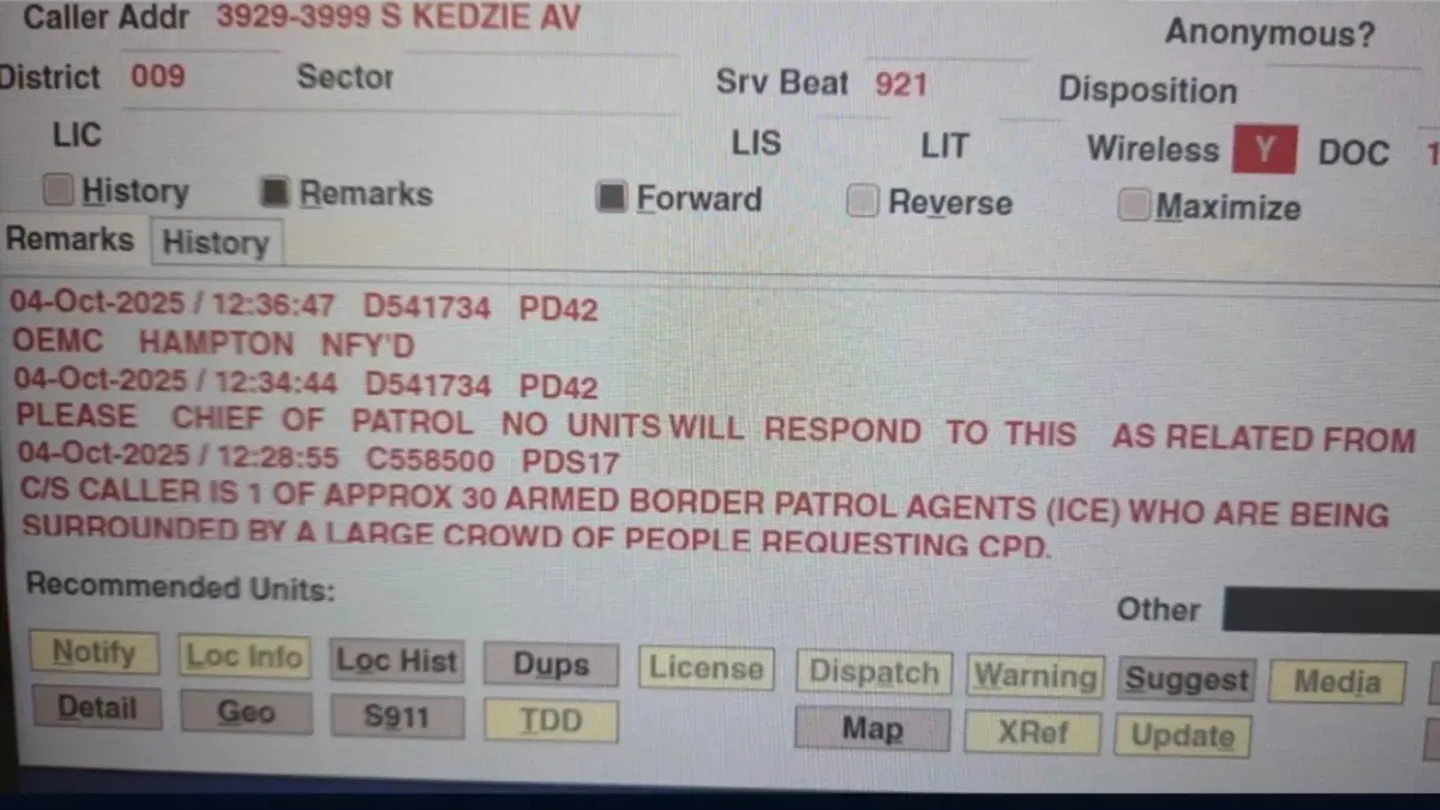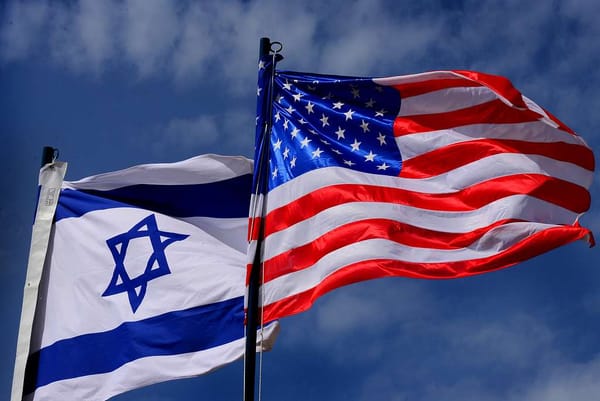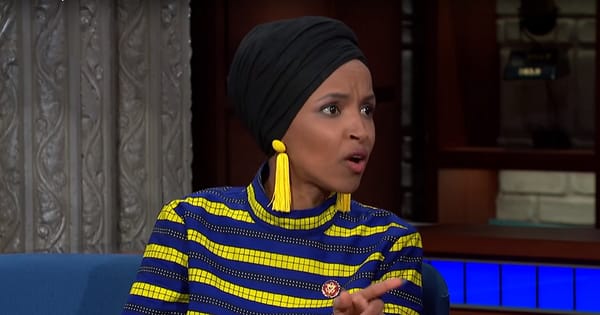When Local and Federal Law Enforcement Collide—Chicago’s Controversial Directive
CPD officers were told to “stand down” and not provide cover for federal agents conducting a search warrant in the city’s 11th District—an area known for gang activity and violence.

In a stunning development that’s sparked outrage among law enforcement insiders, the Chicago Police Department (CPD) is facing criticism for allegedly instructing its officers not to assist federal agents during a high-risk operation.
On Saturday morning, federal agents were rammed and trapped by 10 vehicles, where anti-ICE crowds had gathered for days. Nearly a dozen people were arrested.
One of the drivers accused of ramming into the law enforcement vehicle was armed with a semi-automatic weapon, according to DHS Assistant Secretary Tricia McLaughlin, who also said officers were unable to move.
"Officers were unable to move and were forced to deploy their weapons and fire defensive shots at an armed U.S. citizen."
The armed woman, a U.S. citizen identified as Marimar Martinez, was named in a Customs and Border Protection (CBP) intelligence bulletin, DHS wrote in a statement. She allegedly doxed agents and posted online, "Hey to all my gang let’s f— those motherf—— up, don’t let them take anyone."
As agents found themselves surrounded, they fired defensive shots, striking Martinez. She later drove herself to a nearby repair shop and was taken to the hospital for treatment. DHS officials described the situation as life-threatening, with agents under siege from what they called “domestic terrorists” throwing smoke, gas, and projectiles.
Martinez and another individual, Anthony Ian Santos Ruiz, have since been charged with forcibly assaulting and impeding federal officers. The incident has ignited fierce debate—not just about the use of force, but about the growing divide between federal and local law enforcement.
According to Fox News, CPD officers were told to “stand down” and not provide cover for federal agents conducting a search warrant in the city’s 11th District—an area known for gang activity and violence.
One CPD source expressed frustration, saying:
“This could have gotten someone killed. We’re supposed to have each other’s backs out there.”
On the other side, a spokesperson for the department defended the decision, stating:
“The operation was not coordinated through the proper channels. We have protocols in place for a reason.”

But this isn’t just a one-off miscommunication—it’s a flare-up in a much larger, ongoing turf war between federal authority and local control. Across the country, we’re seeing a growing tension between city halls and Washington, D.C., especially when it comes to law enforcement priorities, immigration enforcement, and civil liberties. Chicago Mayor Brandon Johnson has often positioned the city and its citizenry, as a bulwark against the Trump Administration. This latest incident feels like another chapter in that gritty saga.
In fact, Johnson’s latest executive order, signed on Monday,
Prohibits “city-owned and city-controlled parking lots, garages and vacant lots” from being used as “staging areas” or “operations bases for civil immigrant enforcement activities,” including “surveillance or logistical coordination.”
The fallout has been swift. Officers are reportedly demoralized, and some fear that such decisions could erode public safety and embolden criminal elements. The public, meanwhile, is left wondering who’s really in charge—and whether that power struggle is costing us more than it’s protecting.
This story isn’t just about one operation—it’s about the future of law enforcement collaboration. In an era where crime often crosses city and state lines, cooperation between agencies is not optional—it’s essential. When that cooperation breaks down, the consequences can be deadly.
As this situation unfolds, it’s worth watching how city leadership responds and whether this incident prompts a reevaluation of interagency protocols. For now, many are left wondering: What happens the next time federal agents need backup—and no one shows up?
https://chicago.suntimes.com/immigration/2025/10/06/mayor-brandon-johnson-executive-order-city-owned-properties-ice-free-zones
https://www.foxnews.com/us/chicago-police-sources-blast-departments-response-after-officers-were-told-not-help-fed-agents-cover-a.print
https://www.foxnews.com/us/chicago-police-sources-blast-departments-response-after-officers-were-told-not-help-fed-agents-cover-a





